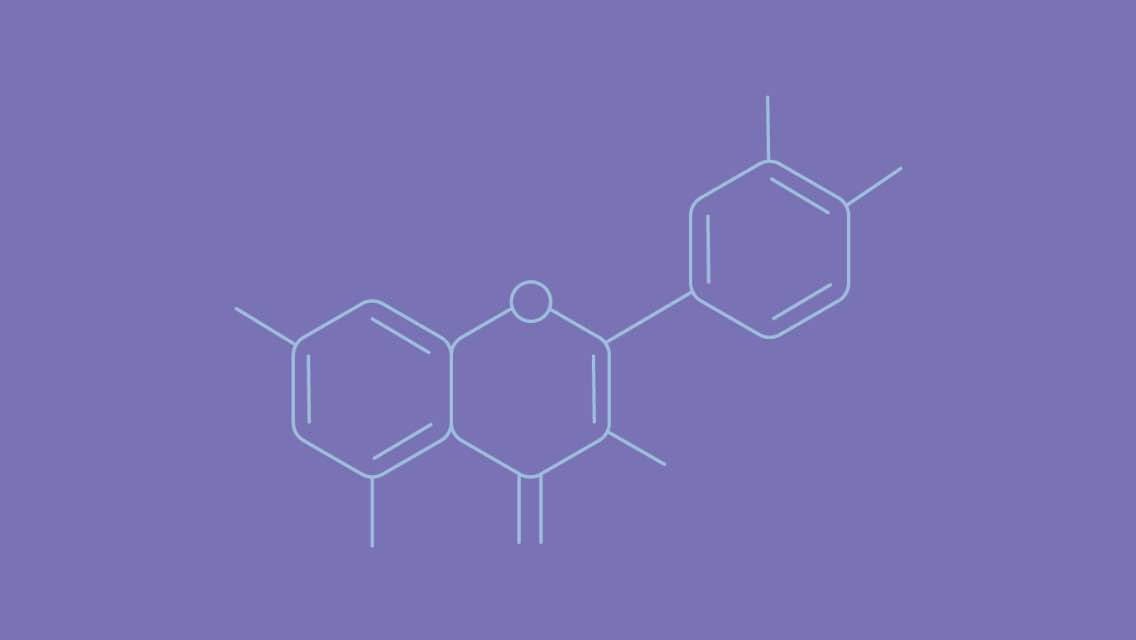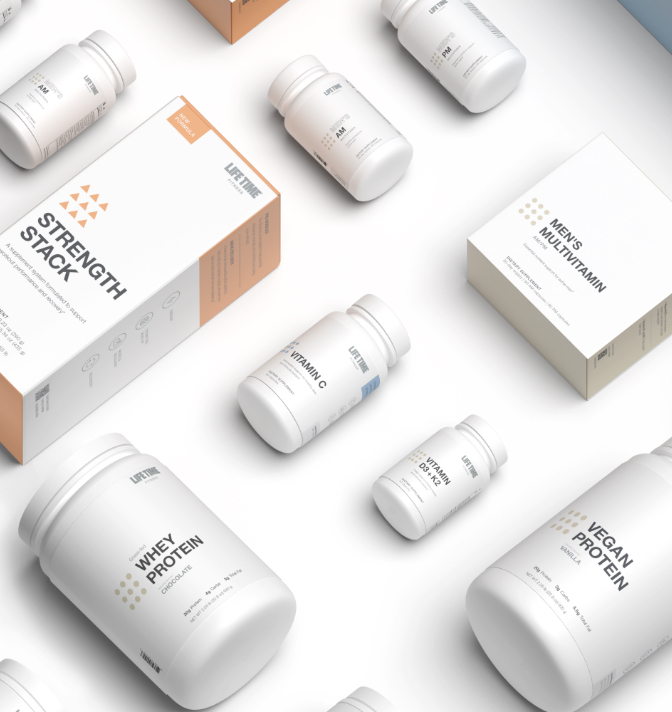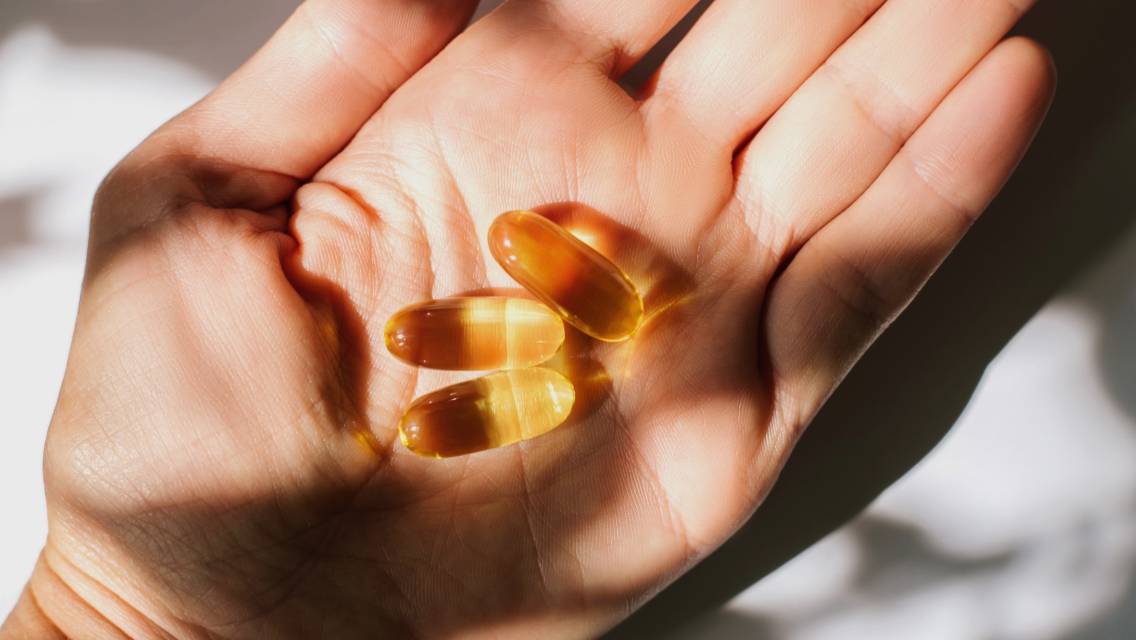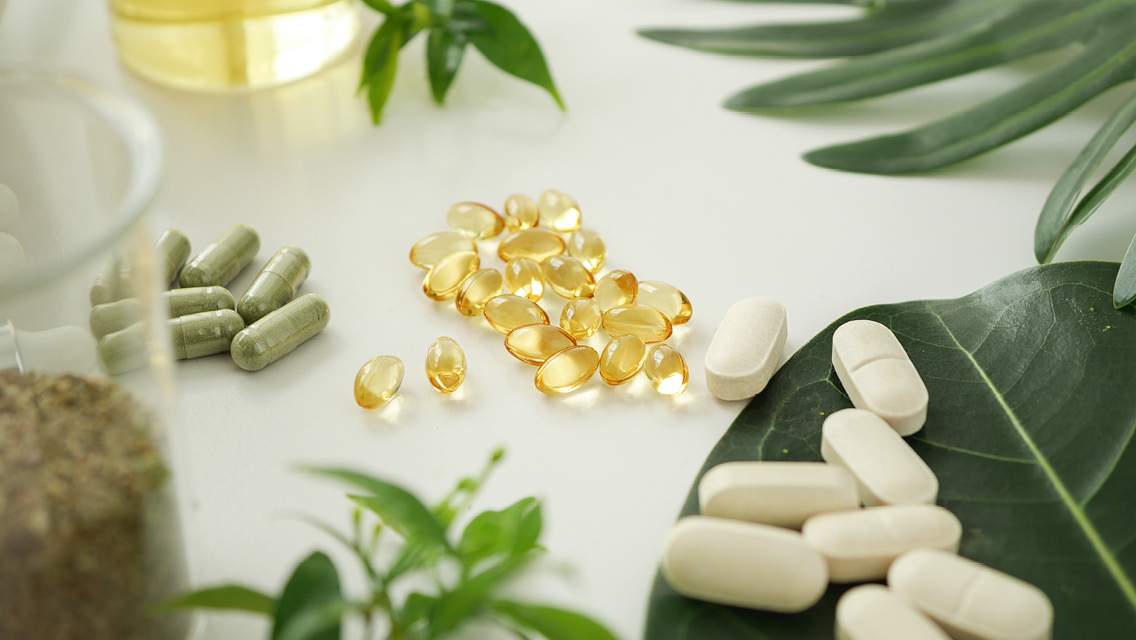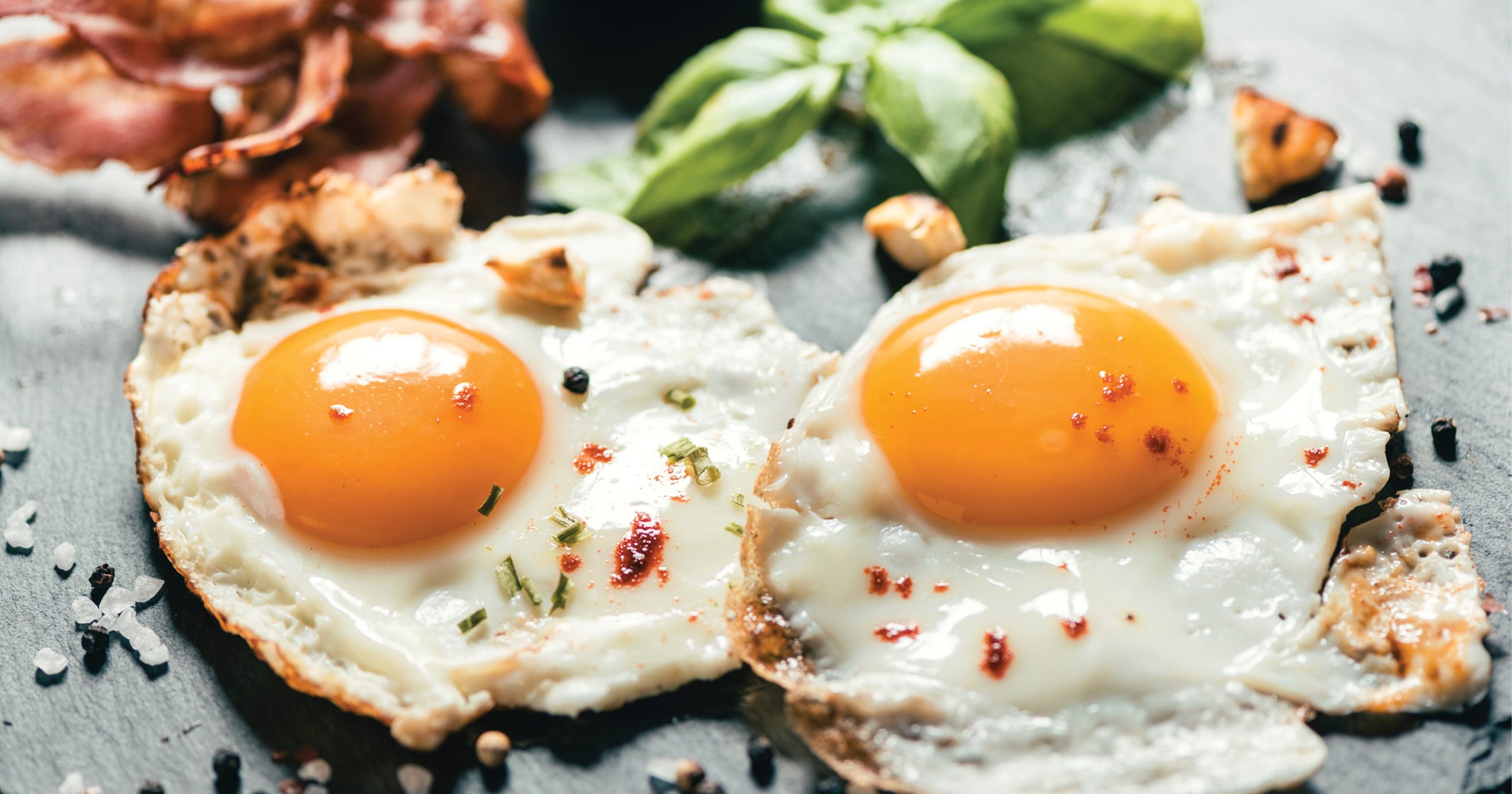Quercetin is one of the plant world’s most potent polyphenols. In humans, its health benefits include protection for the brain, improved body composition, enhanced exercise recovery, and so much more.
In this article, we’ll outline what quercetin is, what it does, and how to use it.
- What is Quercetin?
- Health Benefits
- 1. Reduction in Allergies and Asthma
- 2. Antioxidant Support
- 3. Supports Normal Inflammation Levels
- 4. Supports Healthy Blood Pressure
- 5. Protects Cognitive Function
- 6. Protects Skin
- 7. Supports Immune Function
- 8. Weight Loss and Improved Body Composition
- 9. May Combat Cancer Development
- 10. Enhances Exercise Performance
- Bioavailability, Supplements, and Dosages
What is Quercetin?
Quercetin is a flavonoid, which is a sub-group of polyphenols.
More than 6,000 flavonoids exist in plants. They protect plants from stressors, radiation, infection, temperature changes, and drought.
Unlike vitamins and minerals, there are no recommended dietary intake levels for polyphenols. You don’t develop deficiency symptoms or diseases by not consuming them, but you do derive certain health benefits from consuming them.
Quercetin is one of the polyphenols that can have the most significant impact on our health. It is the compound that gives some of the plants a deep, vibrant color.
Though you won’t consume therapeutic levels from food alone, you do find quercetin in many plant-based foods, as listed below.
| Food Sources of Quercetin | |
|---|---|
| Apples | Black and green tea |
| Blueberries | Broccoli |
| Buckwheat | Capers |
| Curly kale | Cherries |
| Chokeberries | Cilantro |
| Citrus fruits | Cranberries |
| Dill | Grapes |
| Leeks | Lingonberries |
| Lovage | Onions |
| Red wine | Strawberries |
| Tomatoes | |
Though each of the foods above contains quercetin, the way the plants are grown affects their concentration when harvested. Once the plants are harvested or picked, their levels change as well.
For example, onions lose one-third of their concentration within 12 days of storage. On the other hand, strawberries increase their concentration if stored below -20 degrees C (-4 degrees F) for nine months. We bring this up only to point out that relying on food alone makes it difficult to consume a high dose consistently.
Health Benefits
The health effects of quercetin are impressive. As we always say, though:
No supplement is so good that it offsets the effects of a poor diet. No diet is so good that it can’t benefit from supplementation.
Many of the benefits below relate to conditions brought about by poor nutrition and lifestyle choices.
To get the most out of your efforts:
- Eat a higher-protein diet
- Sleep at least seven hours every night
- Strength train at least four days per week
And as always, before delving into more targeted supplements like quercetin, we always recommend starting with the Foundational Five supplements.
The following are 10 health benefits of quercetin:
1. Reduction in Allergies and Asthma
Quercetin inhibits the release of histamine, which makes it a powerful supplement to support symptoms of asthma and bronchitis. It is also often recommended to lessen symptoms of seasonal allergies.
2. Antioxidant Support
Free radical production is a natural part of life. Intense exercise, environmental toxins, smoking, stress, and poor nutrition accelerate free radical production.
Antioxidants squelch free radicals before they can cause widespread damage to your cells. Quercetin seems be one of the most potent diet- or supplement-based sources of antioxidants.
“Quercetin is a more potent antioxidant than other antioxidant nutrients, such as vitamin C, vitamin E, and beta-carotene, and it can chelate transition metal ions, including iron.”
Dong YS, et al.
Research shows it protects cells from some of the damage of cigarette smoking, though that doesn’t negate other problems related to it.
3. Supports Normal Inflammation Levels
Quercetin modulates inflammation.
Quercetin inhibits inflammatory enzymes cyclooxygenase (COX) and lipooxygenase, thereby decreasing inflammatory mediators such as prostaglandins and leukotrienes.
David AVA, et al.
Chronic inflammation increases the risk of cardiovascular disease, neurodegenerative disease, and autoimmune disease. It also interferes with recovery from exercise.
Inflammation may also make your cells more vulnerable to infection, so minimizing systemic inflammation can impact the strength of your immune system.
4. Supports Healthy Blood Pressure
High blood pressure is a known risk factor for cardiovascular disease. It’s also a risk factor for severe virus infections, such as COVID-19.
In research, supplementation with quercetin at doses as low as 150 mg per day may reduce blood pressure. If blood pressure is kept in check, it reduces potential damage to vessel walls that contribute to heart disease.
5. Protects Cognitive Function
Animal research shows the combination of quercetin and fish oil protects the brain from oxidative stress. Oxidative stress is a known contributor to neurodegenerative diseases such as Alzheimer’s or Parkinson’s disease.
Though this is far from a cure for these diseases, it may help to slow their progression.
6. Protects Skin
Like the impact on inflammation inside your body, quercetin may support normal inflammation outside as well. Research shows it can improve signs of inflammation in damaged skin.
It may also maintain skin health through its antioxidants effects, which can slow the aging of the skin.
7. Supports Immune Function
Animals taking quercetin and exposed to a rhinovirus were shown to have a lower viral load than those who did not take it. The research shows that the use of quercetin before viral exposure could lessen infection, and during infection, could lessen symptoms.
One mechanism through which quercetin combats viruses is with zinc. It may transport zinc to infected cells, which allows zinc to disrupt the virus’ ability to transcribe RNA, preventing it from duplicating.
Quercetin inhibits viral infection at multiple stages, including endocytosis, transcription of the viral genome and viral protein synthesis.
Ganesan S, et al.
Cell studies also show quercetin slowed the replication of the hepatitis B virus. It may also have a positive effect on respiratory viruses and Japanese encephalitis. It may also enhance resistance to MERS-coronavirus, and there’s now evidence that quercetin supplementation significantly improves illness severity and viral clearance in SARS-CoV-2 patients.
In addition to viruses, it also supports the immune system in combating bacterial infection. Quercetin also combats pathogenic bacteria on the skin and in the digestive, respiratory, and urinary systems.
Human studies show that quercetin in addition to a healthy diet my reduce total sick days and upper respiratory tract infection severity. Interestingly, quercetin’s immune support is most consistent in people who exercise regularly.
8. Weight Loss and Improved Body Composition
Animal research shows quercetin may prevent body fat gain when eating a higher calorie, weight-gaining diet. In the research, animals were fed a high-fat diet — quercetin raised their metabolic rate, which may have offset the effects of the high-fat diet.
In overweight and obese humans, supplementation with 100 mg per day of quercetin over 12 weeks reduced body fat percentage and body mass index. In another study using 150 mg per day, people experienced a reduction in waist circumference and triglyceride levels.
9. May Combat Cancer Development
Being that quercetin is a food or supplement, and not a pharmaceutical, it doesn’t treat cancer. It can, however, help slow the progression of certain cancers.
As an antioxidant, it combats free radicals, which can trigger cancer progression. In addition, quercetin helps induce apoptosis, the programmed death of faulty (i.e. cancerous) cells, and affects cell signaling in other ways.
10. Enhances Exercise Performance
Based on its effect on immune function, quercetin could support athletic performance by reducing the chance of an athlete getting sick and missing training days. Even mild symptoms could compromise training for a while.
It may also directly enhance training results through its effects on inflammation and antioxidant function.
Research shows direct antioxidants, such as vitamins C and E, can reduce exercise performance by limiting the function of the body’s own antioxidant system. Quercetin and other polyphenols are more indirect antioxidants, boosting the body’s internal antioxidant function.
Reduced oxidative stress can improve recovery between training sessions, leading to faster improvements in performance.
Bioavailability, Supplements, and Dosages
Like curcumin, standard quercetin, whether from food or supplements, is not absorbed well. That’s not to say eating fruits and vegetables won’t help. They do help a little — just not as much as a concentrated dietary supplement might.
In order to get efficacious amounts of quercetin into the bloodstream, you must either take massive doses of plain quercetin or use a supplement form designed to enhance absorption.
Though some studies show benefits at doses as low as 100 mg per day, most recommend a standard dose of quercetin of 1,000 mg, or 1 gram per day. That’s a pretty high dose.
Fortunately, a delivery technology called a phytosome enhances absorption of quercetin by up to fivefold. To create the quercetin phytosome, quercetin is wrapped in a fatty acid shell. Fatty acids freely pass from the digestive system into your circulation. As a result, a dose of 250 mg of quercetin wrapped in a phytosome is the equivalent of 1,000 to 1,250 mg of standard quercetin.
You can find more about quercetin phytosome with zinc here or deep dive into our “Ultimate Guide to Immune-Supportive Supplements” here.
References
Rauf A, Imran M, Khan I, et al. Anticancer potential of quercetin: A comprehensive review. Phytother Res. 2018;32(11):2190-2130.
Bondonno NP, Bondonno CP, Hodgson JM, et al. The Efficacy of Quercetin in Cardiovascular Health. Cure Nutr Rep. 2015;4:290-303.
Choi J-S, Piao Y-J, Kong KW. Effects of quercetin on the bioavailability of doxorubicin in rats: role of CYP3A4 and P-gp inhibition by quercetin. Arch Pharm Res. 2011;34(4)607-13.
Cheng Z, Sin G, Guo W, et al. Inhibition of hepatitis B virus replication by quercetin in human hepatoma cell lines. Viro Sinica. 2015;30(4):261-268.
Coles LS. Quercetin: A Review of Clinical Applications. [Last accessed on 2020 April]. Available from: http://www.chiro.org/nutrition/ABSTRACTS/Quercetin_A_Review.shtml .
Denny Joseph KM, Muralidhara. Enhanced neuroprotective effect of fish oil in combination with quercetin against 3-nitropropionic acid induced oxidative stress in rat brain. Prog Neuropsychopharmacol Biol Psychiatry. 2013;40:83–92.
Dong YS, Wang JL, Feng DY, et al. Protective Effect of Quercetin against Oxidative Stress and Brain Edema in an Experimental Rat Model of Subarachnoid Hemorrhage. Int J Med Sci. 2014;11(3):282-290.
Ganesan S, Faris AN, Comstock AT, et al. Quercetin inhibits rhinovirus replication in vitro and in vivo. Antiviral Res. 2012;94(3):258-271.
Howitzer KT, Sinclair DA. Xenohormesis: sensing the chemical cues of other species. Cell. 2008;133(3):387-91.
Knab AM, Shanely RA, Henson DA, et al. Influence of quercetin supplementation on disease risk factors in community-dwelling adults. J Am Diet Assoc. 2011;111(4):542-9.
Larson AJ, Symons JD, Jalili T. Quercetin: a treatment for hypertension?–a review of efficacy and mechanisms. Pharmaceuticals. 2010;3(1):237-50.
Li Y, Yah J, Han C, et al. Quercetin, Inflammation and Immunity. Nutrients. 2016;8;167;nu8030167.
Jo S, Kim H, Kim S, et al. Characteristics of Flavonoids as Potent MERS-CoV-3C-like Protease Inhibitors. Chem Bill Drug Des. 2019;94(6):2023-2030.
Manach C, Scalbert A, Morand C, et al. Polyphenols: food sources and bioavailability. Am J Cain Nutr. 2004;79(5):727-47.
Nieman DC, Henson DA, Maxwell KR, et al. Effects of Quercetin and EGCG on Mitochondrial Biogenesis and Immunity. Med Sci Sports Exerc. 2009;41(7):1467-1475.
Panche AN, Divari AD, Chandra SR. Flavonoids: an overview. J Nutr Sci. 2016;5:e47.
Samson L, Rimm E, Hollman PC, et al. Flavonol and flavone intakes in US health professionals. J Am Diet Assoc. 2002;102(10):1414-20.
Zhao Y, Chen B, Shen J, et al. The Beneficial Effects of Quercetin, Curcumin, and Resveratrol in Obesity.
Riva A, Vitale JA, Belcaro G, et al. Quercetin phytosome® in triathlon athletes: a pilot registry study. Minerva Medica. 2018;109(4):285-9.
Sohn EJ, Kim JM, Kang SH, et al. Restoring Effects of Natural Anti-Oxidant Quercetin on Cellular Senescent Human Dermal Fibroblasts. Am J Chin Med. 2018;46(4):853-873.
Vida RG, Fittler A, Végh AS, Poór M. Dietary quercetin supplements: Assessment of online product informations and quantitation of quercetin in the products by high-performance liquid chromatography. Phytotherapy Res. 2019;33:1912-1920.
